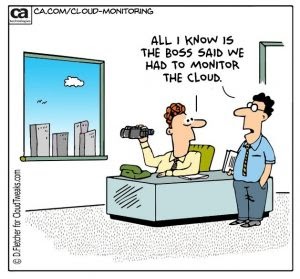DISCUSSION PIECE
In a twenty-hour time frame, you can work a nine-to-five office job, watch around four movies, sleep, drive a car about 450 kilometers, or if you are in Lebanon, spend the entire twenty hours waiting in line for your turn to renew your passport. While it only takes a couple of clicks to request governmental services in many countries, it can take several business days in others. Disparities in accessing information and communication technologies, which may be due to inequalities related to class, race, age, gender, culture, geography, or other factors, can prevent citizens from participating in the global economy. This disparity is known as the “digital divide.”
Governments have a major role to play in bridging the digital divide. In fact, e-governance has revolutionized the ways in which governments interact with one another and with their constituents. This means that instead of being limited to holding public meetings or using traditional media (such as radio, newspapers or television), new information and communication technologies should be incorporated. Governments would then be able to utilize more efficient methods of communicating with citizens and reduce unnecessary pressure on their services. This begs the question, if governments in the Global South go a step further by integrating digital transformation into their public services’ agenda, will they be able to enhance citizens’ trust?
Digital Transformation and Public Trust
It’s easy for government officials to disregard “Digital Transformation” as just another corporate buzzword, cliché, or abbreviation for “cloud migration”. Digital transformation is the process of integrating digital technology into all aspects of a government, significantly altering how it functions, provides services, and serves constituents. To successfully undertake digital transformation, IT and other relevant professionals must have a complete sense of what success looks like from the citizens’ viewpoint.

According to Suma Nallapati, Secretary of Pathology and Chief Information Officer for the Governor’s Office of Information Technology in Colorado (United States), it all comes down to trust. “Citizens must have faith in government”, Nallapati stated in a Granicus study, “and we can achieve it from an IT standpoint by deploying safe, dependable, efficient, effective, and elegant technology that is designed with human usage in mind”. Governments should have three main goals: to provide residents with more options, to improve citizen understanding, and to boost efficiency. Failing to incorporate digitalization may result in governments missing out on significant growth opportunities and, consequently, foster distrust and apathy.
It is important to note that citizens’ trust is a complex concept. The factors that influence it are not clearly defined, and vary from community to community. Several studies suggest that declines in citizen trust can be attributed to a variety of factors, including political scandals, the role of the mass media, poor economic performance, public perception of government competence, and changes in the social and cultural milieu, as well as the probability of policy failures. With these factors in mind, can implementation of e-government processes help regain citizens’ trust in the government?
Citizens expect government officials and municipal employees to act in the public interest and responsibly manage resources. If a citizen has to dedicate most of their day running from one office to another to request a service, while citizens in other countries can simply click a button, rage and anger set in, alongside resentment and distrust of the government —trust me, I have been there. Conversely, public services that are fair and competent can help build public trust and foster a business-friendly culture.
Potential Obstacles and the Way Forward
Countries in the Global South, and especially the least developed countries (LDCs), may not have the financial resources necessary to implement these new technologies. However, change must begin somewhere. Cooperation among important e-government stakeholders, such as governments (both national and local), the commercial sector, academia, civil society, and international organizations, is critical. As the geopolitical tectonic plates shift, and certain Northern leaders retreat from international cooperation, a new source of optimism appears to be emerging: the youth of the Global South. In the future, today’s young people will be high-ranked governmental leaders, activists, or even funders, and they will understand the importance of digitalization and be willing to fight for it.
Even with the financial and bureaucratic challenges they face, governments of the Global South can currently harness a plethora of data resources if digital transformation strategies are included in future planning, and a data-driven economy is prioritized in their agendas. The road does not have to start with multi-million dollar projects. It can begin with something as simple as a $500 survey implemented by the government, which inquires from the citizens, “how can we serve you better?”
التحول الرقمي في عالم الجنوب وتعزيز ثقة المواطنين
تلعب الحكومات دورًا رئيسيًا في سد الفجوة الرقمية، فقد أحدثت الحكومة الرقمية ثورة في الطرق التي تتفاعل بها الحكومات مع بعضها البعض. رغم التحديات التي تحملها هذه الظاهرة والتفاوت الذي نشهده في التكنولوجيا ما بين الدول المتطورة والدول الأقل تطوّراً، بات اعتماد الخدمات الإلكترونية والأنظمة الأكثر كفاءة في عالم الشمال ذو أهمية كبرى في عالمنا الحالي نظراً للتسهيلات والمزايا التي توفّرها للمواطنين والحكومات.
فالسؤال الذي يطرح نفسه هو، هل يمكن أن يحمل تنفيذ عمليات الحكومة الرقمية دورًا حاسمًا في استعادة ثقة المواطنين في الحكومة؟
يطرح المقال التالي موضوع التحول الرقمي والحكومات الإلكترونية وأهميته في البلدان الأقل تطوراً.
About the author: Yasmine Hamdar is a Computational Social Scientist with Data-Pop Alliance. She is Lebanese, and currently resides in the United Arab Emirates.
References
- Mahmood, M. (2016). Enhancing citizens’ trust and confidence in government through digital transformation.International Journal of Electronic Government Research
12(1), 99–110. https://doi.org/10.4018/ijegr.2016010105 - Digital divide and e-governance in South Africa (n.d.). Retrieved November 22, 2021, from https://citeseerx.ist.psu.edu/viewdoc/download?doi=10.1.1.544.2678&rep=rep1&type=pdf.
- Data and the global south: Key issues for inclusive digital development: Heinrich Böll stiftung: Washington, DC office – USA, Canada, global dialogue. Heinrich-Böll-Stiftung. (n.d.). Retrieved November 22, 2021, from https://us.boell.org/en/2020/10/20/data-and-global-south-key-issues-inclusive-digital-development.
- Mahmood, M. (2019). Does Digital Transformation of government lead to enhanced citizens’ Trust and confidence in government? Springer Theses. https://doi.org/10.1007/978-3-030-01759-0
- United Nations. (n.d.). The role of e-governance in bridging the digital divide. United Nations. Retrieved November 22, 2021, from https://www.un.org/en/chronicle/article/role-e-governance-bridging-digital-divide.
- Citizens Cannot Trust What They Cannot See. Retrieved November 22, 2021, from https://www.opengovpartnership.org/trust/citizens-cannot-trust-what-they-cannot-see/



![M002 - Feature Blog Post [WEB]](https://datapopalliance.org/wp-content/uploads/2025/10/M002-Feature-Blog-Post-WEB.png)





